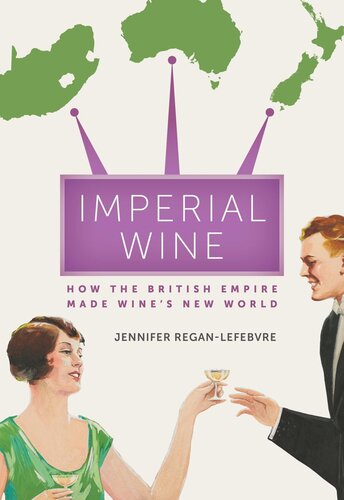

Most ebook files are in PDF format, so you can easily read them using various software such as Foxit Reader or directly on the Google Chrome browser.
Some ebook files are released by publishers in other formats such as .awz, .mobi, .epub, .fb2, etc. You may need to install specific software to read these formats on mobile/PC, such as Calibre.
Please read the tutorial at this link: https://ebookbell.com/faq
We offer FREE conversion to the popular formats you request; however, this may take some time. Therefore, right after payment, please email us, and we will try to provide the service as quickly as possible.
For some exceptional file formats or broken links (if any), please refrain from opening any disputes. Instead, email us first, and we will try to assist within a maximum of 6 hours.
EbookBell Team

4.0
76 reviewsA fascinating deep dive into the colonial roots of the global wine industry. Imperial Wine is a bold, rigorous history of Britain’s surprising role in creating the wine industries of Australia, South Africa, and New Zealand. Here, historian Jennifer Regan-Lefebvre bridges the genres of global commodity history and imperial history, presenting provocative new research in an accessible narrative. This is the first book to argue that today’s global wine industry exists as a result of settler colonialism and that imperialism was central, not incidental, to viticulture in the British colonies.
Wineries were established almost immediately after the colonization of South Africa, Australia, and New Zealand as part of a civilizing mission: tidy vines, heavy with fruit, were symbolic of Britain’s subordination of foreign lands. Economically and culturally, nineteenth-century settler winemakers saw the British market as paramount. However, British drinkers were apathetic towards what they pejoratively called "colonial wine." The tables only began to turn after the First World War, when colonial wines were marketed as cheap and patriotic and started to find their niche among middle- and working-class British drinkers. This trend, combined with social and cultural shifts after the Second World War, laid the foundation for the New World revolution in the 1980s, making Britain into a confirmed country of wine-drinkers and a massive market for New World wines. These New World producers may have only received critical acclaim in the late twentieth century, but Imperial Wine shows that they had spent centuries wooing, and indeed manufacturing, a British market for inexpensive colonial wines. This book is sure to satisfy any curious reader who savors the complex stories behind this commodity chain.